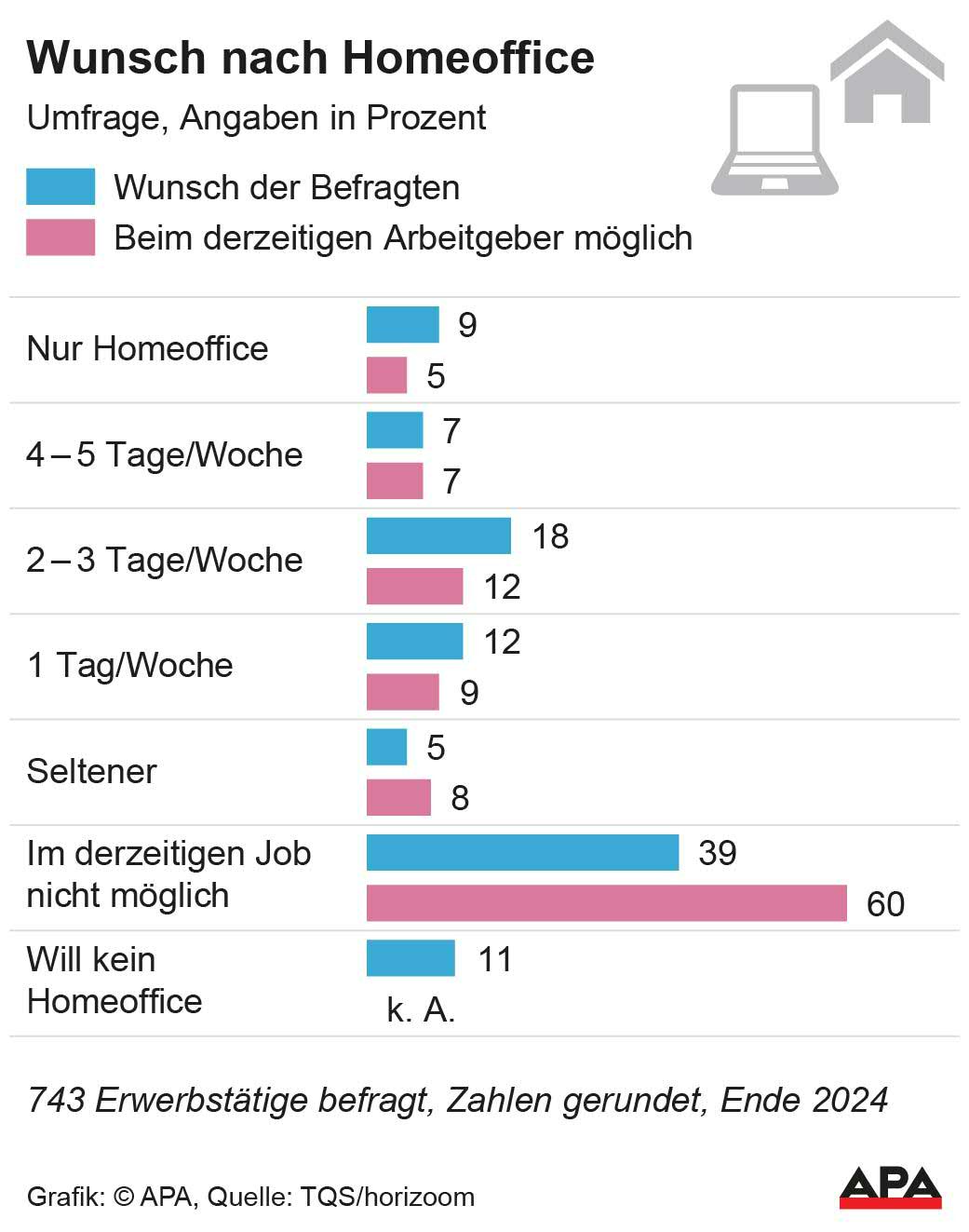Survey: More and More Austrians are Voluntarily Working Part-Time

Just over half of Austrians of working age (16 to 65) work full-time, another 17 percent are part-time. The others either work marginally or not at all, according to a survey by TQS Research & Consulting with 1,000 respondents. For nearly a fifth of part-time workers, this form of work is a "personal preference", so there are no reasons such as care duties, illness, study or lack of offers.
Only Half of the Working-Age Population Works Full-Time
Thus, about three percent of the total population work part-time without external necessity. Self-chosen work reduction, however, leads to lower social insurance and thus less pension in old age. "It's not possible that everyone just works a little and pays a little," says Dieter Scharitzer, Managing Director of TQS Research & Consulting and Assistant Professor at the Institute for Marketing Management at the Vienna University of Economics and Business, in this context.
Criticism of Voluntary Part-Time: "Almost a Bit Too Much Comfort"
The study gives employers a fairly good report. According to it, almost nine out of ten people are "rather" or "very" satisfied with their job, three quarters have a good or very good handle on the balance between private life and work ("work-life balance"). "I was very surprised that so many have already achieved work-life balance," says Scharitzer. "Apparently, many can arrange it better than before," but this is partly at the expense of the economy. "It's almost a bit too much comfort for me," convenience is sometimes played off against performance, Scharitzer is skeptical.
Over 80 percent also have no worries about their job. Financially, exactly half of the respondents are doing well to very well, 14 percent find it "very difficult" to make ends meet. This distribution has not changed compared to the same question a year ago.
Less Home Office Than Desired
Home office may be the trend of the time since the pandemic, but only a quarter of Austrians work at least two days a week from home. 60 percent of respondents indicated that their employer does not allow home office. Only 40 percent would perceive that they actually always need to be on site. In general, people would like more home office, only 11 percent do not want this form of work at all.

This could indirectly conclude that a fifth of people are obliged by their employer to be constantly present, even though they do not see the necessity. But even where employees know that home office is not possible for them, people want to get out of presence professions, says Scharitzer. This makes the search for employees in industries such as retail and gastronomy even more complicated.
Satisfied with Own Life, Concern for Society
Austrians are positive about their own lives, according to the survey. 7 out of 10 rate their personal future prospects positively - two years ago this was only true for 5 out of 10. Accordingly, only one in five looks pessimistically into the new year, with inflation and war most often causing worry. In contrast, only 35 percent rate social cohesion in Austria positively, so half as many. 70 percent of people are negatively affected by the general news situation. Half do not trust the media, almost 80 percent do not believe that politics is making the right decisions.
The mood is heading towards a "I trust myself" scenario, summarizes Scharitzer. People would not give up or throw away hope because of the crises perceived in the environment. Rather, the motto is: "Everything around me is going down the drain, but I can make it for myself".
The survey was conducted by TQS between November 27 and December 4 among 1,000 people in the form of a computer-assisted internet survey on the horizoom panel and is published as the study series "INSIGHTS AUSTRIA". The margin of error is plus/minus 3 percentage points.
(APA/Red)
This article has been automatically translated, read the original article here.





